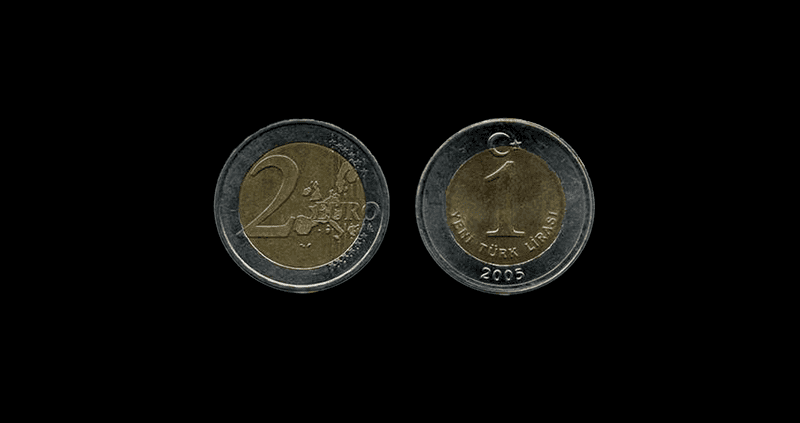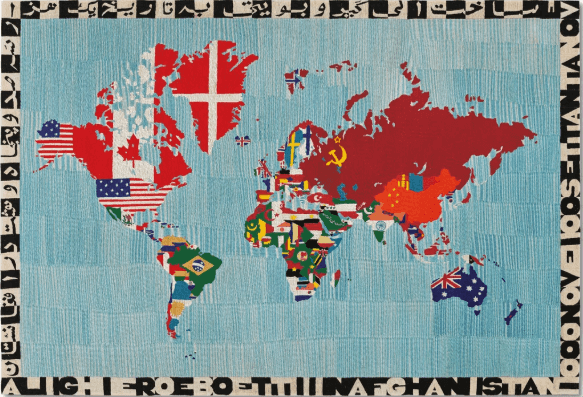
Four major multilateral meetings have come and gone. Together, they exposed the increasing brittleness of Western power, the fictitiousness of the “International Rules-Based Order” designed to uphold it, and the blindness of its architects to the system that is slowly dislodging them from their seats in the high castle.
In Washington, D.C., the World Bank Group held its annual meetings from 25-27 October. The World Bank and International Monetary Fund — resented globally for enforcing austerity, keeping countries in debt penury, and undemocratically favouring the US and its subordinates — are attempting a rebranding. However, like most PR exercises, the changes remain largely rhetorical. In her curtain-raiser speech, IMF Managing Director Kristalina Georgieva told the assembled delegates that “countries need to relearn how to work together” and that the IMF would “play a vital role” in a “revival of cooperation.”
These words rang hollow to the dozens of countries in debt distress, especially when in 2023 countries paid more to service debts than they received in new external finance. The Fund’s marquee announcement for the Global South was a policy change that might collectively save Southern countries a paltry $1.2 billion annually. Instead of scrapping the predatory policy of charging debtor countries additional fees when under duress, it merely trimmed the charges. Insiders say the United States, which effectively controls the IMF through its anti-democratic governance structure, blocked further reforms.
Meanwhile, high-ranking representatives of 36 countries, including Palestine, travelled to Kazan, the capital of the Republic of Tatarstan in the Russian Federation, for the most significant BRICS Summit to date. The BRICS bloc, originally comprised of just Brazil, Russia, India, and China, with South Africa joining in 2010, covers more than half the world’s population. And it is continuing to grow. Last year, Egypt, Ethiopia, Iran, and the UAE all joined as members with Saudi Arabia participating short of membership. This year, Algeria, Belarus, Bolivia, Cuba, Indonesia, Kazakhstan, Malaysia, Nigeria, Thailand, Turkey, Uganda, Uzbekistan, and Vietnam joined as partner states.
China is already the world’s largest bilateral creditor and the BRICS countries now make up a larger share of Global GDP (at purchasing power parity) than the G7. But the BRICS members aspire to be more than the sum of their parts. In Kazan, they began to outline the contours of a truly alternative international system. Among the most ambitious proposals debated and endorsed in principle at the Summit were detailed plans for a BRICS Clearing and Depository system that would sidestep the US-controlled dollar system, allowing states to trade in their national currencies.
If this succeeds, it could be a groundbreaking move for nations whose dependence on the US dollar exposes them to blackmail. There are many examples of the injustice of that system. Just years ago, when the Iraqi Parliament overwhelmingly voted to expel US troops from the country, it was forced to back down after the US government threatened to cut its access to the dollar. The potential for a break with the imperialist order is why the outcomes of Kazan were welcomed with enthusiasm across the Global South.
In response, Western elites repeated the same “words-not-actions” playbook that Georgieva deployed at the IMF. Charles Michel, the President of the European Council, told reporters that the lesson he learned from the participation of so many states in the BRICS was that the EU needed to stop “lecturing” developing countries. The lesson is reflective of the West’s deepening myopia. Southern states are, in fact, less interested in dodging the West’s lectures than in seeking material solutions to the centuries-long injustices they have faced at the hands of Western powers.
Over 16,000 kilometres away from Michel’s press briefing, the same act was on display from the UK when the Commonwealth Heads of Government met this week in Samoa, an island nation in Polynesia.
The Commonwealth is a club of 56 member states and a hangover from British colonialism that does very little. Judging by the presence of new Prime Minister Keir Starmer and King Charles in the Pacific, the British state believes it can mobilise the bloc into force in Britain’s geopolitical struggle — on behalf of the US — against China, Russia and other official enemies.
Yet, rather than rallying to the British flag, the leaders of South Africa and India chose to be in Kazan. And despite Starmer’s attempt to block discussions on reparations for slavery and colonialism, Britain’s former colonies forced it onto the agenda and into the final communiqué, albeit in watered-down form. The UK’s official line is that it understands the “strength of feeling” about reparatory justice for imperial crimes but that it would rather look “forward, not back” — even as it continues to cling to a system of imperial domination long past its due date, most notoriously by underwriting the colonial genocide in Gaza.
The fourth of the meetings took place in Cali, Colombia, where nations are gathering for the COP16 UN biodiversity summit. Last week, a new UN report said the world is currently on track for over three degrees centigrade of warming based on current policies. That level of heating blasts straight through the 1.5 degrees agreed in Paris in 2015 at the height of faith in the current multilateral system’s ability to do anything of consequence. 2023 was a year of record temperatures, emissions and biodiversity loss. But, in Cali, once again we see the stark gap between the ambitions of the South and the inaction of the North.
The host government, led by eco-socialist President Gustavo Petro, has placed Colombia’s Indigenous communities at the centre of the summit. It is championing a greater role for Indigenous people in protecting the country’s rich ecosystems. Last week, the environment ministry announced it will create Indigenous-led environmental bodies.
But this welcome and necessary shift of power within one state is not mirrored globally. This summit is the first since the 2022 agreement for all UN member states to produce nature action plans and for rich countries to deliver $20 billion per year to developing nations to protect nature. The funds have not been forthcoming and only around 10% of countries have published their plans.
The current multilateral order, built by US power after the Second World War when much of the world was still formally colonised, is driving humanity off the edge of a cliff. From climate collapse to proxy violence, gaping global inequality to genocide, it cannot answer the needs of the majority of the world’s people. And so, this order is beginning to wither away as a new one cautiously emerges to take its place.
Latest from the Movement
Berlin against the Amazon tower
On Saturday 26 October, a coalition of tech workers, housing organisers and climate activist demonstrated against the opening of Berlin’s Amazon Tower. The corporate giant is preparing to be the main tenant of an enormous new tower block.
The demonstrators challenged Amazon’s abuses and demanded affordable housing, decent work and climate action.
Baerbock, resign
PI member DiEM25 has initiated a petition for German Foreign Minister Analena Baerbock to resign “for her blatant disregard of basic principles of international law and diplomatic conduct” in her support for Israel and its crimes against the Palestinians. DiEM25 notes that “Germans overwhelmingly reject her foreign policy and Israel’s brutal siege on Gaza. Her so-called “feminist foreign policy” is a mockery, dehumanising Palestinians while selectively sympathising with Israeli victims. This betrayal of humanitarian values cannot stand.” You can sign the petition and share it here.
Mask of Maersk Actions
PI member the Palestinian Youth Movement launched the opening salvo in its Mask of Maersk campaign this past week with actions around the world against the shipping giant. Maersk liners deliver weapons components to manufacturers and arms to the Occupation. Find out more about the campaign and get involved here.
Silvia Federici in Hungarian
After publishing Working Class History in Hungarian earlier this year, PI Wire partner Mérce and Théâtre le Levain, an independent French theatre founded by long-time PI translations volunteer and friend Attila Piroth, are joining forces again to launch the Hungarian edition of PI council member Silvia Federici’s Witches, Witch-Hunting, and Women. You can read more about the initiative and offer your support here.
Art of the Week: Ahmet Öğüt (born 1981) is a Kurdish conceptual artist based in Istanbul and Amsterdam. Perfect Lovers is a readymade work from 2008 that was exhibited at the 12th Istanbul Biennial, Istanbul. At the time two Turkish Lira was equal to one Euro, yet the design of One Lira was close in design to the Two Euro coin, worth four times the value. Therefore, in small change and vending machines, the Lira was used deceptively.
Öğüt has exhibited globally including at the 53rd Venice Biennale, Kunsthalle Basel, and the 3rd Guangzhou Triennial, China. In 2012 he founded The Silent University, a programme for and with asylum seekers, refugees, and migrants to give and take courses. The project was hosted at Tate Modern, Delfina Foundation, and The Showroom in London. Öğüt contributed to Progressive International’s current art fundraiser. For more information email: [email protected].



